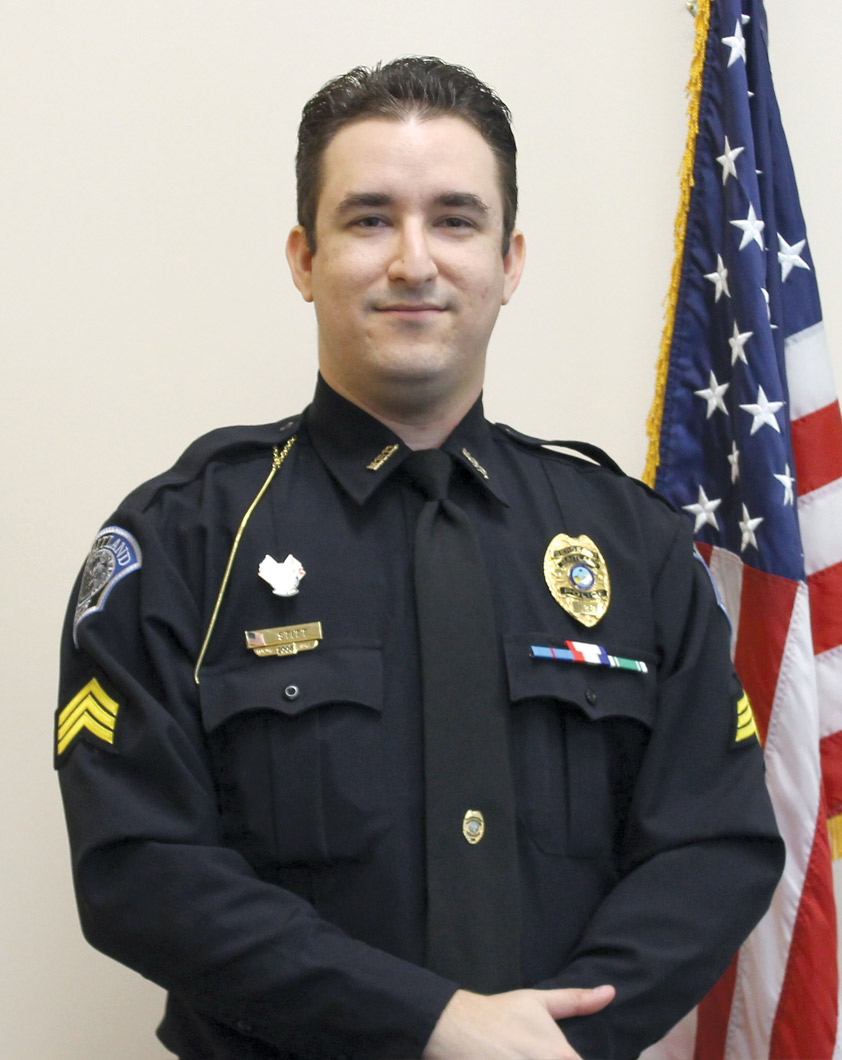
For Lieutenant Tara Petty and Sergeant T. Stitt, higher education has always been a personal goal. They both knew it would lead to professional opportunities, too. The real decision wasn’t whether or not to go back to school, but rather what topic to focus on. Each of them determined that forensics provided the breadth and depth of study into elements of criminal justice they were seeking.
Petty, who works in planning resources management for the City of Manassas Police Department in Virginia and is a member of Battlefield FOP Lodge #43, earned a Master of Science in forensics from George Mason University (GMU) in 2014. Stitt, who works in the Training Division and K9 Unit of the Maitland Police Department in Florida and serves as president of Maitland FOP Lodge #155, is currently pursuing his master’s in criminal justice with a concentration in crime analysis from Tiffin University. He’s on track to graduate in December 2017.
Here, they share how their advanced degrees will be aiding their future professional growth.
Petty: A detective who had been with the City of Manassas Police Department for 40 years had started the GMU Forensics Graduate Certificate program and invited me to an informational night. I went because it was a topic I liked and is always changing. I was one of four officers in the Department who had some training in forensics for crime scene investigations, so for me, it was an easy choice. I tell students at high schools there are so many aspects of forensics, from the lab to police scenes and different aspects to work in, and it’s challenging no matter which field you choose to specialize in.
Stitt: The motivation was for the back end of my career. Although a master’s degree is not required for promotion, I think in 10 years it will become the standard for command staff requirements. The second reason for me is that I want to teach. Most community colleges require at least a master’s degree for faculty. Also, crime analysts can work in a civilian capacity.
Petty: Going back to school while having a full-time job and a personal life was a challenge. I had to really focus. Also, because it was master’s-level, they expected more of you as an educated individual.
Petty: When you take evidence to a Commonwealth attorney prosecuting cases, I think it gives you a boost. It adds to your résumé when testifying in court. I think there’s more value to my testimony now.
Stitt: The job is partially about self-confidence and being backed up with facts. It translates when dealing with the public and how I approach the command staff with new ideas and applications I want to see installed. It adds credibility to my ideas and increases my confidence.
Stitt: I learned there has to be effective communication with analysts to develop operational plans that could further efficiency. Crime analysis does that better than I thought it would. My crime analysis classes are improving my communication with other elements of the agency to improve the efficiency of the department.
Stitt: Crime analysis doesn’t fit into my training role yet; however, a class I recently took in computer applications in law enforcement has been helpful. That taught me how to build a database that’s perfect for a training division. Also, now I have a better idea of how to use presentation materials. I knew the basic function of it, but the computer applications class gave me a more expansive element of presentation technology.
Petty: I think eventually I do want to get another degree, but I don’t have a time frame. When I finish with law enforcement, I would like to teach. I like engaging young people. I would like to go into high schools or a university teaching forensics or criminal justice.
For more information on forensic science degree programs, check out “Forensics Under the Microscope.”






